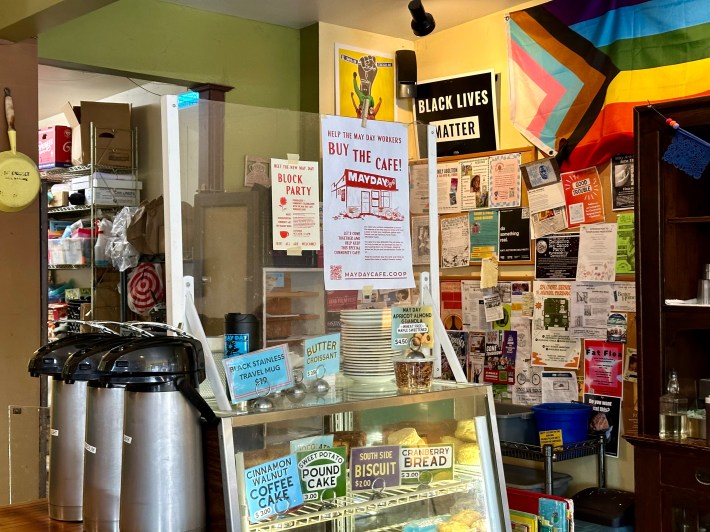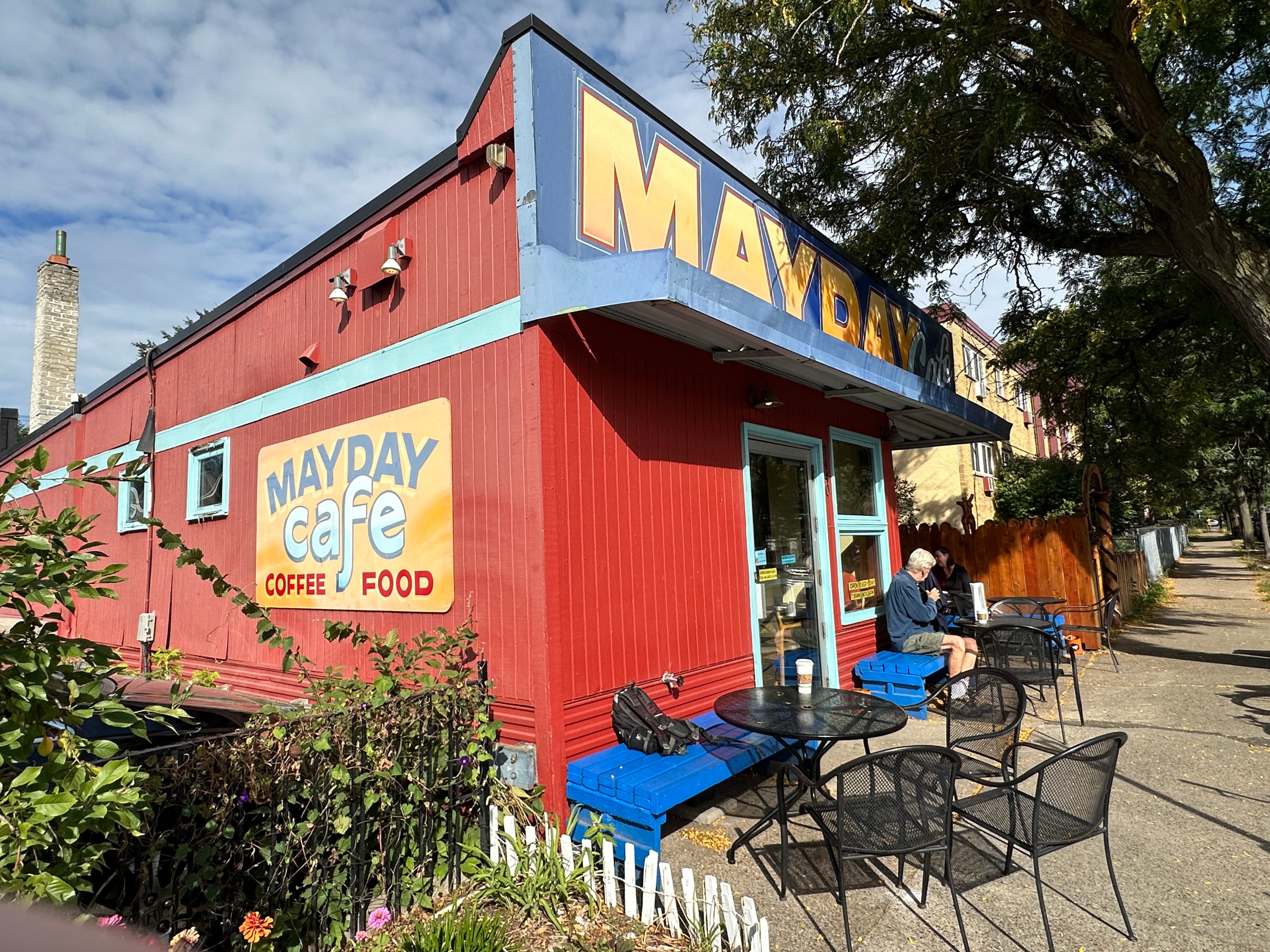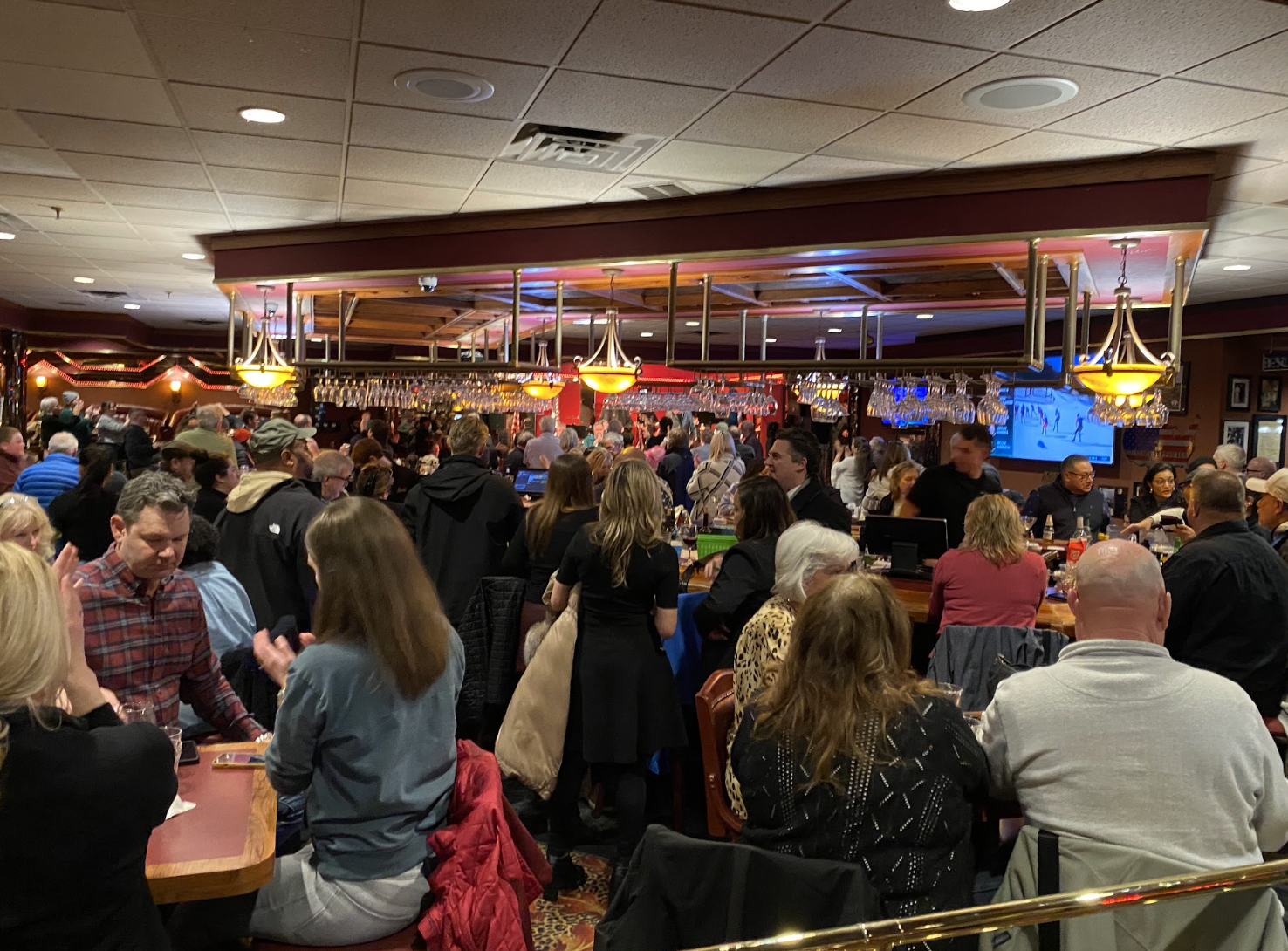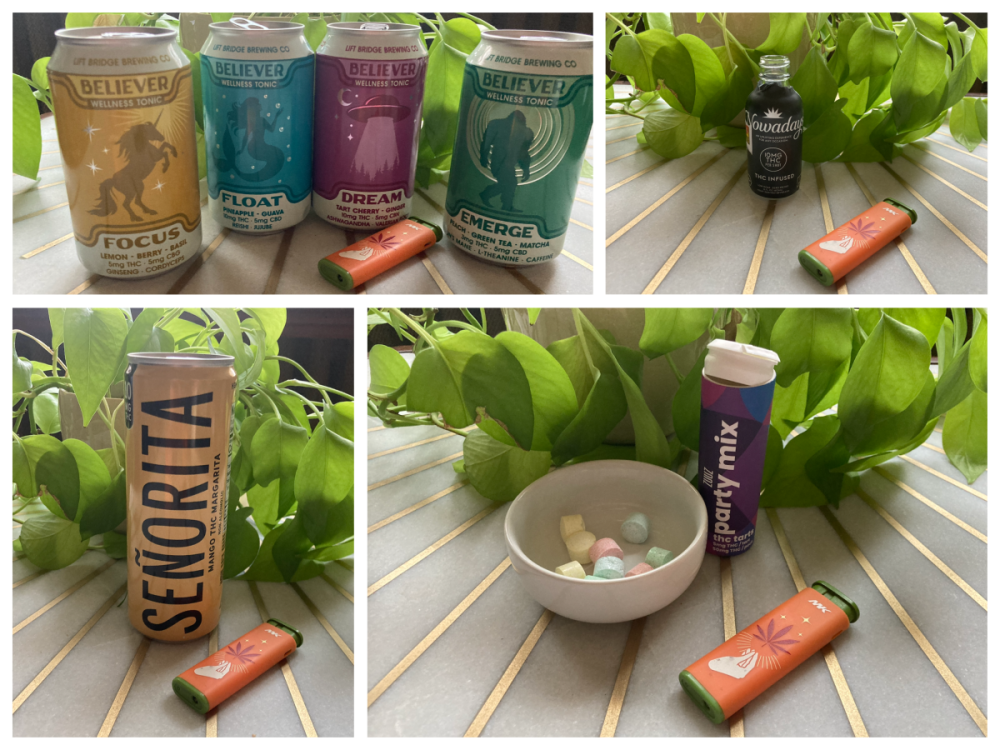The energy at south Minneapolis’s May Day Cafe matches the colorful block letters on the sign out front. On weekday mornings, while some folks with headphones quietly thwack away on laptops, others are engaged in spirited conversations about their photography projects, or their pets, or the state of Minneapolis Public Schools. The espresso machine whirrs; friends exchange hugs and I-haven’t-seen-you-in-so-longs. The coffee mug-shaped bike racks out front are reliably full.
It’s this energy that regulars like Sayge Carroll, studio director at nearby Mudluk Pottery, worried about losing when longtime May Day owner Andy Lunning announced plans to sell the building last year.
“It’s just been a staple in the neighborhood forever,” says Carroll, who loves the quirky baristas (“they’re always my people”), the cozy space, the unpretentious and laid-back energy, and the amazing food. “You walk into this place, where, I don’t know, the world is better… it’s this thing that you need to have in Powderhorn.”
That sentiment is broadly shared by many in the neighborhood. And it’s why, for the last month and a half, a collective of May Day employees, supportive neighbors, and enthusiastic regulars have been planning to preserve it by supporting workers who hope to transform the cafe into a worker-owned co-op.
Organizer Mira Klein, a May Day barista for about two years, says Lunning told cafe employees about his plan to sell about a month before listing the building last year. She’s long been a fan of worker co-ops, and says she wasn’t the only one: “A bunch of us immediately turned toward each other and were like, ‘Well, we should buy the place.’”
Workers spent last fall building relationships and learning about the nuts-and-bolts work of co-op organization. St. Paul-based community wealth-building nonprofit Nexus Community Partners provided lots of guidance, as did existing co-ops in the area, by helping field questions like “What would a co-op mean?” and “What would workers be saying yes to?”
Organizers also prioritized connecting, very early on, with the community members and May Day regulars who would become an essential part of the co-op’s fundraising and awareness-building campaign—folks like Sean Lim, an artist and organizer who’s been supporting the coop as “a friend, fan … and mutual aid practitioner who wanted to do what I can to help out.”

Lim, who supplied one of the testimonials that dot the co-op’s website and painted the big banner cafe workers have been bringing around town to events, sees the cooperative effort as intertwined with other local organizing campaigns, whether it’s supporting the teachers’ union or union efforts at other Twin Cities restaurants and cafes.
“I just see this really interconnected web of amazing folks kind of coming together to do everything that they can in their ability, their capability and capacity, to show up for May Day,” Lim adds, “because it’s been such a staple in the community.”
The co-op’s Give Butter campaign has already raised more than $57,000—22% of its $250,000 goal—most of it arriving in small donations from folks who love the cafe. Klein says a lot of that fundraising has been the result of May Day fans and neighbors stepping up, “somebody saying, ‘I want to host a speed-dating event,’ somebody saying, ‘I want to host a puppet fundraiser.’”
For May Day employees like cook Sunny Draves-Kellerman, this is an exciting (if slightly scary—in a good way!) time.
“The cool thing about it is that it’s so nascent—we’re at the point where everything is possible,” says Draves-Kellerman, who grew up blocks from the cafe and has been visiting since she was young. “Nobody knows everything about everything; we’re all just trying our best… I have a lot of hopeful idealism.”
That percolating sense of optimism and energy is shared inside May Day.
“I’ve heard from a number of customers who’ve said, ‘I thought this was a worker co-op!’” Klein adds. “There’s so much about the energy in May Day, and how the place feels, the people who frequent the cafe, the role that the cafe already occupies and has occupied for a long time in the Powderhorn community that’s so conducive to a cooperatively run business.”
The hope is to transition to cooperative ownership by January 2025, but there are a lot of moving pieces. They’re not getting financing from a traditional bank, for example, but from Shared Capital Cooperative, which funds worker coops, and in addition to the fundraiser, they’re working with the city to obtain small business loans.
Organizers know that there’s still some trepidation from passionate regulars, many of whom have been coming to the cafe since it opened in 2003, or even before that, when it was the Powderhorn Co-op, a cooperative grocery store. Klein laughs that she’s heard a lot of variations of, “I’m so supportive of this as long as you don’t take away the black bean burrito.”
But it’s exactly that passion that’s made the campaign a success so far, with people tapping into their existing networks and using the fundraiser as an opportunity for connection—planning block parties, contributing art, or participating in good old-fashioned door-knocking campaigns. (If you’re interested in getting involved, there’s info about that here.)
“It’s the people who make May Day May Day,” Klein says. “They’re what makes it feel so alive.”






